Each year, the Dean of the College of Letters & Science offers awards recognizing outstanding performance, service, and contributions by L&S Academic Staff members.
The L&S Academic Staff Awards honor staff who have demonstrated exemplary performance both in terms of their positive impact on students and through distinctive contributions to their department, unit, and/or the College of Letters & Science.
We salute and offer congratulations to the winners of the 2022-23 awards:
Academic Staff: Early Career Award
Recipients of the L&S Academic Staff Early Career Award must have 0-7 years’ (including the current year) experience and demonstrate outstanding performance, promise of future contributions and a high degree of professionalism.
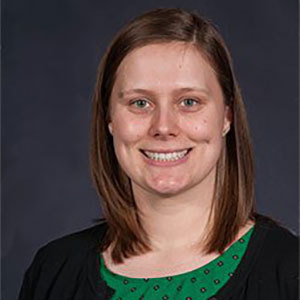
Maria Hartwig
Academic Advising Manager
Department of Psychology
If there is one thing that Department of Psychology Undergraduate Advisor Maria Hartwig cares about, it's the students with whom she works. Within a department that has more than 2,000 advising contacts each academic year, Hartwig is known among students and colleagues for her welcoming demeanor, attention to detail and exceptional advice.
“Half of our sessions are spent laughing and chatting, making the environment she created safe and welcoming,” said senior psychology major Lauren Cole. “I felt like she took the time to get to know me as a human beyond my identity as a student.”
Hartwig is committed to student well-being and will go above and beyond to provide solutions to students who face graduation deficiencies or issues with their enrollment. In every situation, she proactively brainstorms potential ideas and solutions to complex advising problems.
“Maria turns potential negative and dire situations, where students are at-risk of not graduating, into positive outcomes," said Valerie Johnson, a fellow Undergraduate Advisor in the Department of Psychology. “Maria raises the standard and expectations of advising by approaching each student's situation with compassion and empathy.”
Outside of advising sessions, Hartwig’s commitment to students is evident in her initiative to identify ways in which the department can improve. As the scholarships coordinator for the department, she identified the lack of scholarship opportunities for students who are not involved in research and suggested an expansion of opportunities. A new scholarship that recognizes psychology students who are active in their community outside of research will accept its first round of applicants this spring. In addition, after recognizing the lack of resources available for prospective students, Hartwig created an interactive and engaging presentation about the psychology major and department.
“Maria’s dedication to identifying a solution to our gap in services, developing the means and medium of delivery, and implementing this project at scale, is a demonstration of her ability to solve problems and work across campus units,” said Johnson.
Whether she is walking a student through their DARS report, solving enrollment problems or going above and beyond to make change in the department, Hartwig’s concern for the student, great expertise and networks, and active problem solving are a testament to her abilities as an outstanding advisor, and make her an invaluable part of many students’ experiences during their time at UW.
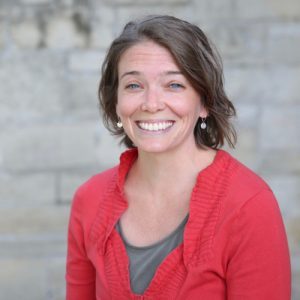
Laura Schmidli
Instructional Technology & Engagement Specialist
L&S Instructional Design Collaborative
As an Instructional Technology & Engagement Specialist with the L&S Instructional Design Collaborative (IDC), Laura Schmidli’s job is to work with instructors on the use of technology to enhance their teaching. Helping professors move their classes to a hybrid or online setting, make content more accessible to students with disabilities, or learn more about how to adapt to the changing landscape of AI in the classroom are just some of the ways that she has made an impact on UW classrooms.
Along with her technical and pedagogical knowledge, those who have worked with Schmidli note her exceptional communication skills, as well as the values that she brings to every project that she works on — humility, appreciation, inclusivity, integrity, and respect are observable attributes that guide her in every interaction.
“I’ve observed many times how Laura's listening conveys generosity, patience, intelligence, and openness to new and nuanced ideas,” said David Macasaet, the Instructional Media Producer at IDC. “Laura makes folks feel seen, and, in doing so, she cultivates genuine rapport and admiration with the individuals she works with.”
Jennifer Ratner-Rosenhagen, the Merle Curti and Vilas-Borghesi Distinguished Achievement Professor of History, worked with Schmidli in 2019 to turn her standard in-person, large lecture course into a blended (and ultimately, fully online) course. Ratner-Rosenhagen said that Schmidli was invaluable to thinking through every aspect of the class — from online quizzes to the syllabi.
“Right from the start, Laura was supportive, clear, affirming, kind, and positively brilliant at sequencing everything I needed to do — from big picture to minutiae,” said Ratner-Rosenhagen. “When I would get overwhelmed — which I often did — she had the most remarkable way of soothing my anxiety and reassuring me that we’d get this class to work, and work beautifully.”
Schmidli goes above and beyond the expectations of her role, taking on leadership roles on projects such as the design and implementation of a new L&S teaching assistant training module to help TAs teach effectively and supportively while physically separated from their students during the COVID-19 pandemic. The training was attended by more than 700 L&S TAs in the fall of 2020 and has since been adopted by other departments.
In every project she is part of, Schmidli is noted as being immensely helpful and incredibly accommodating. Her expertise and empathetic support make her an invaluable part of the IDC team.
“She makes me a better leader,” said Jonathan Klein, the Director of IDC. “Working with her is one of the great pleasures of my time at UW."
See full list of pass L&S Early Career Awards at this link.
Academic Staff: Mid-Career Award
Recipients of the L&S Academic Staff Mid-Career Award must have 8 or more years’ (including the current year) experience as outstanding leaders with substantial professional competency and the promise of continuing contributions.
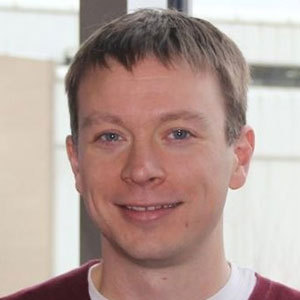
Brian Esselman
Distinguished Associate Director, Organic Chemistry Lab
Department of Chemistry
In addition to his work as an Associate Director of Organic Chemistry Laboratories, Dr. Brian Esselman is also a young leader in the field of high-resolution molecular spectroscopy, a nationally recognized speaker and presenter, and the lead author on nine papers since graduating with his PhD from UW in 2012. He also finds time to support his colleagues and share his work with other educators.
“Brian understands how to motivate his team members to bring out the best in us by modeling effective teaching techniques, listening to our concerns, providing useful feedback, and suggesting resources for growth,” said Liana Lamont, an Instructor and Course Coordinator with the chemistry department.
Esselman’s unique approach to teaching has made him a popular professor among undergraduate chemistry students. Using phenomena-focused curricular materials, including problem sets, discussion activities, and laboratory exercises, he integrates leading-edge computational models to help students understand the reality of chemical systems. Challenging students to explain, predict and/or model chemical phenomena, Esselman has created a greater commitment to student engagement in “doing science,” rather than just memorizing it.
“The phenomena-focused curricular materials Brian creates are among the most authentic and comprehensive that exist anywhere in the world,” said Ryan Stowe, an assistant professor of chemistry. “He is confident that our students are capable of engaging with real phenomena as scientists and creates a learning environment that empowers them to do so.”
Esselman has been recognized for his work in transforming course curriculum in chemical education in numerous publications. His contributions, such as updating curriculum design and delivery, allowing students to perform research-level CMM assignments on their own schedule, and restructuring the training program for new TAs, have yielded substantial advances at UW–Madison. Esselman also collaborates with other educators, including other chemistry departments in the UW System, community colleges and high schools to improve computational chemistry resources and effective use of technology in the classroom.
“Brian freely shares his experience and expertise in teaching and makes available all his course materials,” said Nicholas J. Hill, the Director of Organic Chemistry Laboratories. “His ongoing involvement in scientific and educational research and community-of-practice engagement will drive our undergraduate program to further national recognition, and thousands of students will benefit from his continued investment every semester.”
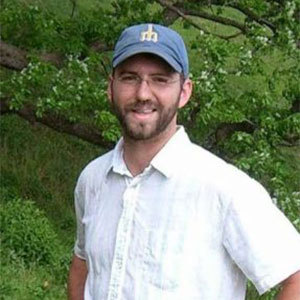
Seth McGee
Specialist II
BioCore, Teaching, Learning, and Technology
In 2002, Seth McGee was hired by UW–Madison’s BioCore to be a Laboratory Instructor and Lab Manager. Jeff Hardin, Raymond E. Keller Professor in the Department of Integrative Biology, calls the decision to hire McGee a “game changer.”
On paper, McGee’s core job description is straightforward: to support BioCore lab instruction across three semesters. In practice, however, this job description merely scratches the surface of McGee’s contributions to BioCore’s teaching mission.
McGee’s colleagues and students note his above-and-beyond attitude and recall ways that he has expanded the boundaries of innovation in the lab, such as developing a user-friendly, independent protocol that allows students to take high-resolution photos of microscopic structures, moving lab equipment to his own home to collect data for every cell biology lab student during the pandemic, and devising a new supernatant aspiration system that allowed cell biology students to use less water during a key step in their research.
“Seth is one of the most creative scientists I’ve ever met,” said Michelle A. Harris, PhD Emeritus Teaching Faculty. “He has a knack for finding innovative ways to use our BioCore resources and equipment to make our lab instruction more efficient and supportive of student learning.”
BioCore’s inquiry-based science curriculum requires students to ask their own research questions and devise logical hypotheses based on reliable literature. Students then design, carry out, summarize, and communicate their independent research multiple times over several semesters, with the help of BioCore lab instructors to facilitate this authentic inquiry process. As a mentor and instructor, McGee is recognized for his innovation and thoughtful intervention at every step of the process.
“Seth inspired us to pursue our wonder through questions every day in class and follow our own curiosity down unique paths to understanding,” said William Vuyk, who had McGee as an instructor in 2019. “In his teaching, mentorship, research, outreach and educational practice, Seth embodies a hands-on exploratory approach.”
McGee’s innovation and contributions are not confined to the classroom, however. He has been an essential part of outreach programs to nearby rural communities. Along with his work at the BioCore Prairie, a 12-plus acre research prairie, on which Hardin notes that “his ability to perform controlled burns is frankly legendary,” McGee has also partnered with the BioCore Outreach Ambassadors to enrich science education in local K12 school communities.
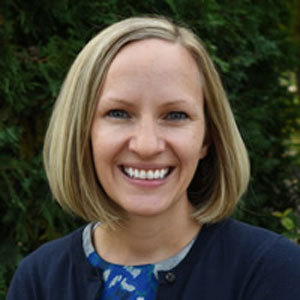
Lisa Klein Vogel
Scientist II
Institute for Research on Poverty
As the Scientist II at the Institute for Research on Poverty (IRP), Dr. Lisa Klein Vogel juggles a multitude of responsibilities. In addition to designing and implementing research studies that aim to inform policy and practice related to child and family well-being, Vogel effectively communicates her findings to a variety of audiences and acts as a mentor and supervisor to graduate students. In addition, she serves as the project manager of the Child Support Policy Research Agreement between the IRP and the state of Wisconsin’s Department of Children and Families, where she coordinates day-to-day logistics of a $5 million agreement that involves roughly 15 unique research projects. Vogel is regarded by her colleagues as one of the most reliable co-workers they have ever had.
“Lisa is the rare person who simply never drops any balls — and whose tactful intervention ensures that other people drop far fewer than we would otherwise,” said Judi Bartfield, the Meta Schroeder Beckner Outreach Professor at the School of Human Ecology.
Vogel’s extensive research experience makes her an invaluable member of the team at IRP, where the outcomes directly affect low-income families and the service providers who work with them.
“She is a highly skilled researcher whose expertise in qualitative and survey work is in high demand on campus and at the national level,” said IRP Associate Director Hilary Shager. “Her work is in constant service to the Wisconsin Idea, supporting evidence-based policymaking and helping to improve the lives of some of the state’s and nation’s most vulnerable families.”
While Vogel makes an impact with her research, her commitment to connection is impressive, as well. Along with her professionalism comes a great deal of empathy for the barriers faced by participants in the programs with which she works, and an understanding of how her research and relationships can make a difference in their lives.
Vogel’s impact is evident in her research, as she is the author of 10 peer-reviewed publications and dozens of government reports. But her impact extends beyond her research and the families that it impacts, as she is also an effective and motivating mentor to graduate students. In a joint nomination letter, sociology doctorate candidates Alexis Dennis and Samina Hossain explained Vogel’s willingness to extend opportunities to others whenever she can.
“She is truly collaborative,” they wrote. “She often creates opportunities for greater input and learning to those she mentors through presentations and co-authorship opportunities. Working with and learning under Dr. Vogel’s guidance has provided us both with experiences that have challenged us, encouraged us, and supported us in ways that have shaped our academic and professional goals.”
See full list of pass L&S Mid-Career Awards at this link.
Academic Staff: Judith Craig Distinguished Service Award
The Judith Craig Distinguished Service Award honors an L&S academic staff member with 15 or more years of outstanding service, and is named in honor of former L&S Associate Dean Judith Craig.

Christopher Lee
Assistant Dean and Director
L&S Student Academic Affairs
When Christopher Lee, the Assistant Dean and Director of L&S Student Academic Affairs, retires this June, his absence will be felt in many realms — by students and colleagues alike. With a reputation for compassion and an encyclopedic knowledge of academic policy, many lives and careers have been influenced by Lee during his 32 years at UW.
“Christopher was one of the first people I met when I began my UW–Madison tenure in 2013, and, from that very first meeting, he was someone whose counsel and perspective I have relied upon and trusted,” said Beth Warner, the Associate Registrar at L&S. “He has challenged me and virtually anyone who he has worked with to discover and develop strengths that align with those he demonstrates: patience, negotiation, honest communication and the ability to address situations not through the lens of immediacy but through the larger lens of long-term university-wide impact.”
During his time at UW, Lee has helped thousands of students during their most critical times of need. He has continued to carry the most student appointments in the office and had noteworthy interactions with students on 933 occasions in 2022 alone. Many of the students he interacts with, however, are often affected by mental health and life circumstances that require an exception to academic policy. Lee is known for his empathy and intentional solutions in these situations.
“His support of students as they navigate the most difficult changes of college and life — death of a parent, mental health challenges, homelessness, academic misconduct –— can be life changing,” said Wren Singer, the Associate Vice Provost of the Office of Undergraduate Advising. “I always refer a student (or parent) in a difficult situation to Christopher. I know they will be listened to, supported, and challenged, as needed to address the situation.”
Along with his work with students, Lee has also served on L&S and university-wide committees that oversaw curriculum development, steered policymaking and, more recently, responded to a pandemic in unimaginable ways. When the university changed academic policy by switching to a new transcript system, Lee was instrumental in ensuring that academic policies, such as end-of- semester actions and general education requirements, would continue to be transparent to students, advisors, and deans. This, along with other leadership initiatives, demonstrates the multifaceted capabilities of Lee, which have continued to improve UW during his time here.
“To do his job requires an ability to work at the nexus of policy and practice, to shift from big-picture to more local analysis, and to see the connections between these realms,” said Susan Beth Koenig, an Assistant Dean of L&S. “Christopher is a valued resource — for students, faculty, advisors, parents and staff across campus — because of this deep skill.”
See the full list of past L&S Judith Craig Distinguished Service Awards at this link.